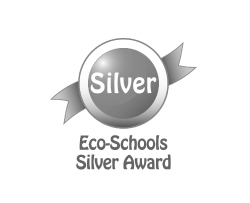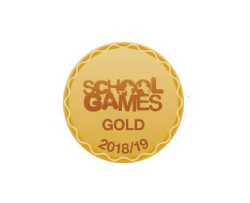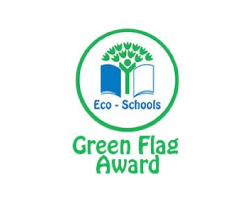Writing Curriculum Statement
Our curriculum takes children on their journey from Nursery right through to Year 6.
In Nursery and Reception:
Our Early Years curriculum for Nursery and Reception pupils follows the ‘Early Years Framework’ which then links into Years 1-6 where we follow the National Curriculum for English. We have designed a sequenced and progressive long term planning format to ensure that lessons build on prior knowledge and enable our pupils to know more and remember more. Please visit our Early Years page within this section of the website to find out more about early writing.
The English curriculum at Caedmon Primary teaches pupils to speak and write with fluency so that they can communicate their ideas and emotions to others and through their reading and listening, others can communicate with them. Through writing, pupils have a chance to develop culturally, emotionally, intellectually, socially and spiritually. Literature, especially, plays a key role in such development and we link our reading curriculum closely to our writing curriculum.
In Years 1-6, each writing unit begins with a quality text (which are the same classic and modern texts as our reading curriculum). This strong link enables our pupils to immerse themselves in the text. Our reading comprehension and writing lessons are linked – pupils study the same text. Time spent reading, analysing, discussing, enacting and reflecting on the text during reading comprehension greatly supports pupils’ writing.
Our writing units always begin with a ‘hook’ lesson. This is an exciting lesson which engages the children and links to the theme of the main text. This is followed by the exploration of a ‘model of excellence’ text and the analysis of several other texts from the same genre. Children are encouraged to immerse themselves within the genre and take part in lessons which compare and contrast, hot seat, discuss themes, enact and discuss the texts. With support from the teacher, children then create a ‘warm task’ in their books. As the shared writing unfolds, there is a gradual shift in emphasis away from the adult towards independent outcomes. From Year 2 to Year 6, we allocate time for self-assessment, editing and revising, following a progression in skills, so that children acquire the necessary skills to revise written outcomes independently. Lessons are carefully scaffolded and children with SEND have specific targeted support according to individual and group need. Each writing unit ends with an independent assessment task – the ‘hot task’. Across the year, children complete a variety of written pieces e.g. non-fiction, poetry, descriptive writing and story writing. Finished work is displayed in each classroom in celebration of the children’s achievements.
Although discreet daily lessons in spelling, punctuation, grammar and handwriting are taught, these aspects are also an integral part of writing lessons and are important across the curriculum.
Spelling, punctuation and grammar
Discreet daily spelling sessions encourage children to use a rang of multi-sensory strategies and to apply these skills. Discreet daily punctuation and grammar sessions follow our progression and enable pupils to discuss and practice these skills in depth, which they can then apply during writing lessons and across the curriculum.
Handwriting
Discreet handwriting sessions follow our progression document and these lessons encourage children to use the correct letter formation, focus on key skills (such as using finger spaces, writing on the line and ensuring that they have clear ascenders and descenders). They then apply these skills across the curriculum.
Vocabulary and Spoken Language
Subject specific vocabulary is taught contextually and displayed on writing walls, with the expectation that children apply these words independently and accurately. From Year 2, pupils are taught how to use dictionaries and thesauruses to improve their writing.
We actively encourage our pupils to have a wide and growing vocabular, across the curriculum, and ensure it is an integral aspect of the teaching of every subject. We provide many opportunities to develop spoken language, for our pupils to speak clearly and confidently and to articulate their views and opinions. Opportunities are maximised to enable pupils to match their style and response to the intended audience and purpose, including assembly performances, discussions and debates, drama, pupil voice and student leadership.
Impact of the English Curriculum
Pupils at Caedmon Primary School leave Year 6 with confidence, fluency and understanding of language and literacy. They have a range of independent strategies and transferrable skills and are able to take responsibility for their own learning, including monitoring and correcting their own errors.
The main source of impact can be seen in the quality and breadth of work seen in pupils’ books and the learning environment. We strive to raise the expectation of learners and the quality of work they produce from a curriculum which is designed to provide a depth and wealth of knowledge.
The impact of our curriculum can also be measured against the outcomes of all schools nationally at the end of each key stage. But, most importantly, by how effectively it helps our pupils develop into well-rounded individuals who embody our values and carry with them the knowledge, skills and attitudes which will make them lifelong learners.
Please click here to view the Writing at Caedmon Primary School document.
Please click here to view the Progression of Genres document.
Please click here to view the Writing Overview document.
Please click here to view the Long Term Plan for Year 1.
Please click here to view the Long Term Plan for Year 2.
Please click here to view the Long Term Plan for Year 3.
Please click here to view the Long Term Plan for Year 4.
Please click here to view the Long Term Plan for Year 5.
Please click here to view the Long Term Plan for Year 6.







